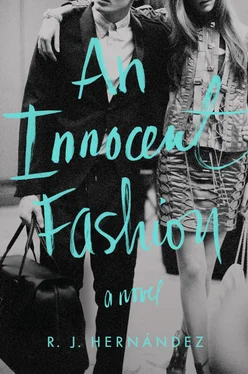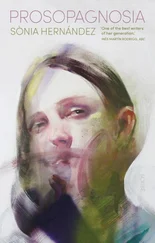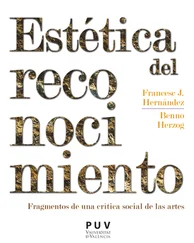I turned, and she said, “I left a plastic hat on your desk — can you steam out the wrinkles? You’ll find the steamer in the corner by the gloves.”
“Of course,” I said through a veil of calmness, adding under my breath, “ Susan. ”
Sabrina didn’t hear me, which was probably for the best.
I FOUND ON MY DESK THE HAT SHE HAD BEEN REFERRING TO. It was shaped like a floppy transparent bell, and I didn’t see any wrinkles in it, but what did I know? I rolled out the steamer from the corner where she had instructed me to look. It looked a little like a snake, attached to a pole with a large mystical glass container on the bottom and a swirly hook on the top, where its head rested.
I had never seen one before, and I wasn’t sure what to do with it. George was gone for lunch and I definitely couldn’t ask Sabrina, so I searched on the Internet: How does a steamer work? The search results instructed me to fill the glass container with water, so I set out carefully with it in my hands, trying to find the bathroom.
Beyond the hallway through which I had entered that morning, Régine , I discovered, was more puzzling than a topiary maze — just one sharp corner after another, and a hundred cubicle walls in rows, all white — and it was only after running into several dead ends that I found the women’s bathroom. I figured the men’s bathroom would be next to it, but all I could see was an unmarked door. When I tried to open it, it was locked, and on the other side there was no door at all — just Kate Moss on the wall, her eyes glazed over with indifference.
I didn’t want to take too long, so I glanced down the empty hall, and darted inside the women’s bathroom. I opened a tap straightaway, and while the water gurgled into my vessel, I thought I noticed a familiar feminine scent, before realizing — the women’s bathroom at Régine smelled like Chanel No. 5.
Had the smell lingered from an earlier spritz, or did the women’s bathroom at Régine alway s smell this way? As I was contemplating the possibility that the supply of the perfume was provided by Régine for the janitor to mix into his mop bucket, the door opened and an older woman stepped inside: tall, white-haired, wearing a loose-fitting button-down shirt and a pair of slim blue jeans. She was looking down, immersed in the task of wiping a stain on her collar, but as she drew closer, I recognized her as easily as I had Edmund. She was Jane Delancey, the creative director of Régine.
On replaying Sabrina’s caustic overtures in my head (“ You’re nobody’s equal here ”), I remained rooted like a tree stump, pretending not to exist while I prayed Jane Delancey wouldn’t notice me, a boy, in the women’s bathroom. Water was spilling loudly over the top and down the sides of the container now, but I didn’t dare touch the faucet.
“I haven’t seen you before,” Jane said, her face still lowered as she strode to the adjacent sink and passed her napkin under a stream of water. She scrubbed at the stain — it looked like tomato sauce — and a teeny diamond earring wiggled in her fleshy lobe. “My mother used to say I was a clumsy little girl,” she said to me, or the stain. “Now I’m just a clumsy old lady.”
I smiled nervously as our faucets gushed in unison.
In photographs she had looked distinguished enough, her forehead flowing with sage-like wrinkles and her long cloud-white hair swept up in an all-American ponytail. In real life, however, she seemed quite plain in her catalogue-white dress shirt and classic tapered jeans, with not a “statement piece” in sight. Her shoes were her only indulgence: white pumps with a diamond buckle — Roger Vivier, I conjectured — and even those were nowhere near as opulent as what she could get away with in her position. For better or worse, she was as simple as a sheet of laundered linen, subtly trimmed, flapping gently on a clothesline.
Jane looked up from her tomato stain. “Are you a woman?” she asked.
Like a cool breeze, her gaze sent a light shudder through me. Her eyes were pale blue, almost clear, and gave the impression that she could see better than an average person.
I gulped, couldn’t speak.
“Okay,” she nodded acceptingly, then turned to go. “The men’s bathroom is by the copy room. Either way, that’s a wonderful suit.”
I tried to say thank you, but choked once more. When her wrinkled hand was pressed against the door, she turned her face calmly back to me. “I’m Jane,” she said, and was gone.
I turned off the water and scurried back to the fashion closet, afraid I had taken too long; when I returned, Sabrina had gone to pay a deliveryman in the Hoffman-Lynch lobby for her lunch and the only person there was George.
“ How does a steamer work? ” he mocked, pointing to the computer screen where I had unwisely left my innocent search query on display. “What are you trying to steam?”
I gestured to the flaccid plastic hat on the desk. Approaching the steamer, I realized the container in my hands was only half full; after all that, I had sloshed water all over my pants scampering down the hall.
George laughed right in my face, and I could smell the mint he had just tossed in his mouth. “You can’t steam plastic, you idiot.”
“Sabrina asked me to.”
He rolled his eyes. “Not my problem.” The next minute the steamer had seared a pink blister into my palm like a cow-brand, and George was snorting with pleasure.
Outside the nightclub, under an ominous cloud of cigarette smoke, a funereal line of black and gray figures cast long, spidery shadows.
“How joyless, these ‘grown-ups,’” remarked Madeline, with an accusatory lilt on the last word. Sheathed in a milk-white kitten heel, her foot dangled out of the taxi as she waited for my gentlemanly arm to escort her. When she got hold of me, she hopped onto the curb, offering me a blue-eyed blink that said, “ Well — let’s go already. ”
An hour before, I had been welcomed into her parents’ Upper East Side apartment by her mother, who smiled through a face full of well-placed cosmetic injectables, and commented favorably on my green blazer. I blushed, and thanked her with a sense of great honor; a compliment from Mrs. Dupre seemed as sacred and true as any from a deity who had been mummified.
Sitting with his legs crossed on the damask couch, Mr. Dupre waved at me from behind a copy of the Times , while above his head soared a portrait of their family photographed before their mantelpiece a few feet away. I had once tried to wrangle a similarly respectable image out of my parents. Among the rest of my books, I had read a lot of biographies growing up and, from Picasso to Gandhi, it seemed that everyone with the hope of any bright future at all had at least one early family portrait in which they visibly radiated with the promise of greatness, flanked by a dignified-looking mother and father. I certainly didn’t consider myself highly enough to anticipate a biography would be penned in my honor, yet — who knew? If I ever managed to get out of that small town, it would be good to have at least one decent photo of my parents and me, on the off-chance someone thought to write a chapter about my humble beginnings.
“What for, cabrón ?” my father had grumbled, preferring to lounge like a half-naked lump in front of the television than to get dressed up and miss a fútbol game. Having gotten the idea in my head — and considering it my parents’ duty to oblige me at least a single indulgence in life — I begged for it with an insistence my peers reserved for a puppy or a go-kart, and in the end my parents didn’t even sit up straight. We came out looking quite how I should have expected: as dignified as a bunch of kumquats.
Читать дальше












